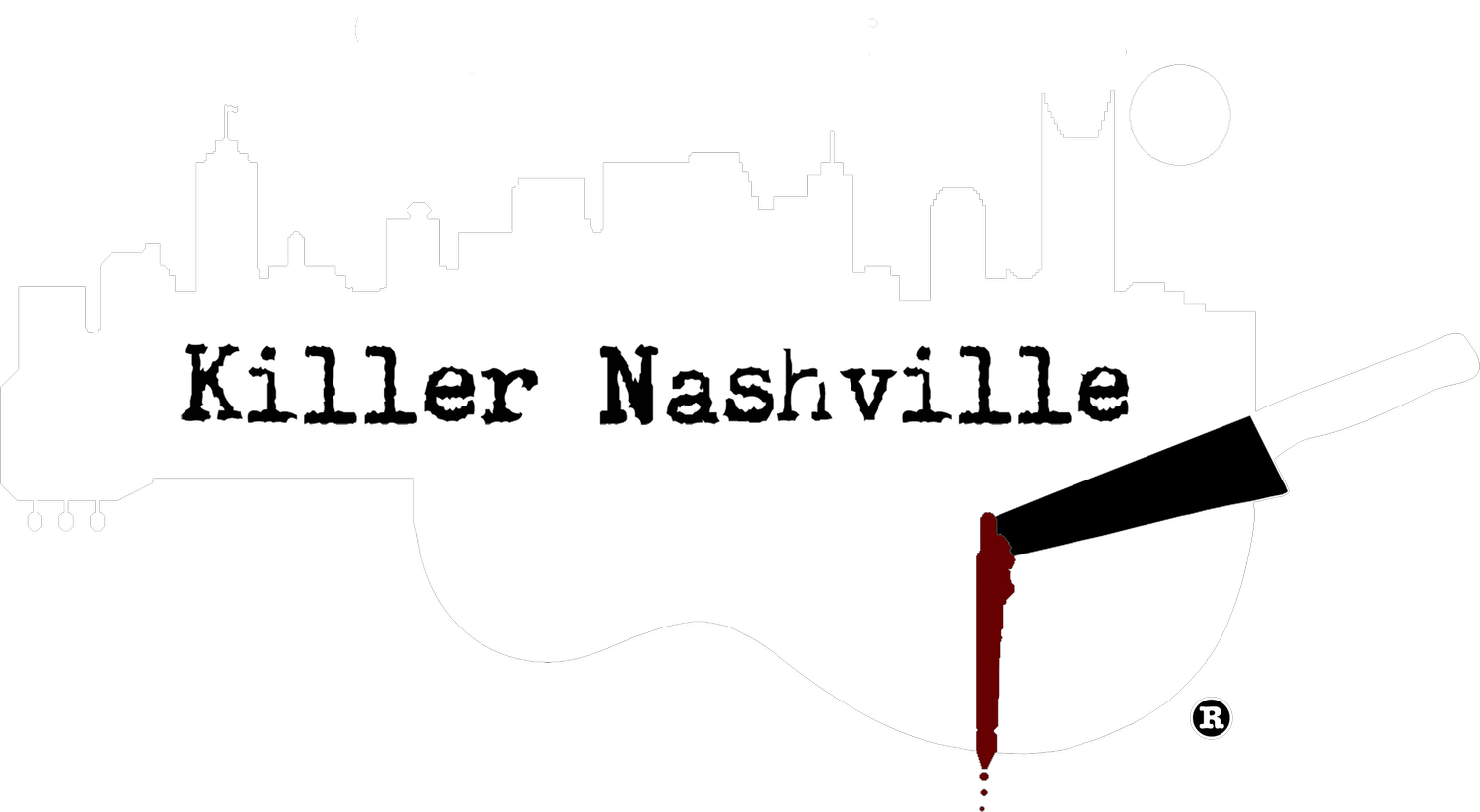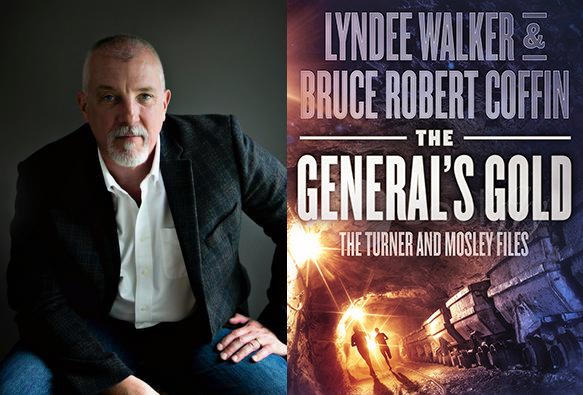
KN Magazine: Interviews
“Bruce Robert Coffin: Using Your Life to Write a Police Procedural”
Bruce Robert Coffin interviewed by Clay Stafford
Bruce Robert Coffin has been coming to Killer Nashville International Writers’ Conference every year since its early days, so it’s only fitting that we feature this incredibly talented writer as our cover story. To give a little backstory, Bruce wanted to be a writer, but after going to college and not necessarily receiving the encouragement or success he had hoped for, he chose a career in law enforcement. Little did he realize he was laying the foundation for the outstanding writing career that was to follow. I had a chance to speak with Bruce from his home in Maine. “Bruce, when you were a police officer, a detective, did you even think about writing again, or did you miss writing as you went through your regular job?”
“There’s nothing fun about writing in police work or detective work. Everything is bare bones. There’s not much room for adjectives or that type of stuff. It’s just the facts, ma’am. That’s what they expect out of you. So, everything is boilerplate. It’s very boring. You’re taking statements all the time. You’re writing. If there was one similar thing, and it certainly didn’t occur to me that there would ever be a time that I would write fiction again, but it did teach me to write cohesively. Everything that we did had to make sense. You know, you do one thing before you do the next. Building timelines for putting a case together, doing interviews with witnesses, and then figuring out how they all fit together, and making a cohesive story or narrative out of that to explain to a judge, a jury, or a prosecutor. As far as story building was concerned, I think that might have been something I was learning at that point because that’s exactly how a real case gets made. I wasn’t thinking about it in terms of writing later, but I think it’s something that helped me because I think my brain works that way now. I know how cases will work, I know how cases are solved, and I know why cases stall out. I think all those things really allow me to better describe what real police work is like in my fictional novels.”
“When you retired from detective work and started writing again, how much of the police work transferred over, and how much was fiction from your head?”
“I made a deal with myself when I started that I wouldn’t write anything based on a real case. I had had enough of true crime. I had seen what the real-life cases had done to people: the survivors, the victims, the families, and I didn’t want to do anything that would cause people pain by fictionalizing something that had been part of their lives. I made a deal with myself that I would write as realistically as possible, but I would never base any books on an actual case I had worked on. And I’ve so far, knock on wood, been able to stand by that. I think the only exception would be if it were something that had a reason. Maybe the family came to me and asked me to do that or something like that. There had to be a reason for it, though. And so, when I started writing, I could draw from a well of a million experiences, things that we tamp down deep inside, and you don’t think about how that affects who I am and how I see the world. And I think in my mind, I imagined I would be making up stuff, and that would be it. There’s nothing but my imagination. There would be nothing personal about what I was writing, and it would just be fun. And like everything you delve into that you don’t actually know, I had no idea I would be diving into the real stuff, like dipping the ladle into that emotional well and pulling out chunks of things from my past. There were scenes that I wrote that emotionally moved me as I was writing them. And it’s because what I’m writing is based on something that happened in real life. And I’m crafting it to fit into the narrative of the story I’m writing. But the goal of me doing that is really to evoke emotion from the reader, which I think is the most important thing any of us can do. You want the reader to feel something. You want them to be lost in your story. And I really didn’t think that was going to happen. But it’s amazing what I dredged up and continued to dredge up as I write these fictional police procedural stories.”
“Some of the writers I talk with view writing as therapy. Did you find it cathartic coming from your previous life?”
“I did. I think that was another shock. I didn’t think any catharsis was involved in what I was doing. But like I say, when you start delving back into things that you thought you had either forgotten about or thought were long past, it really allowed me to deal with things. It allowed me to deal with things I wasn’t happy about when I left the job. The things that I wish I could unsee or un-experience. As a writer, I was able to pull from those. I think you and I have talked about this in the past. I honestly think the best writing comes from adversity. Anything difficult that the writers have gone through in life translates well to the page. And I think that’s one of those things where, if you can insert those moments into your characters’ lives, your reader can’t help but identify with them. So, I just had the luxury of having the life we all have, the ups and downs, the highs and lows, the death and the love, and all those things we have to experience. But added to that, I had thirty years of a crazy front-row seat to the world as a law enforcement officer. So, using all of that, I think, has made my stories much more realistic and maybe more entertaining because it gives the reader a glimpse inside what that world is really like.”
“So, you have this front-row seat. And then we readers read that, and we want to write that. But we haven’t had that experience. Is it even possible for us to get to that point that we could write something like that?”
“It is. And I tell people that all the time. I say you have to channel your experiences differently, I think. Like I said, we all have experiences, things that are heart-wrenching, or things that are horrifying, or whatever it is in our lives. They just don’t happen with as great a frequency as they would happen for a police officer. And we all know what it’s like to be frustrated working for a business, being part of a dysfunctional family, or whatever it is. Everybody has something. And so, I tell people to use that. Use that in your stories and try to imagine. You know, you can learn the procedure. You might not have those real-world experiences, but you can learn the procedure, especially from reading other writers who do it well. But use your own experiences. Insert that in there. You know, one of the things that I think is the easiest for people to think about is how hard it is to try and hold down a job. Like, you go to work, and you may see the most horrific murder happen, and you’re dealing with the angst that the family or witness is suffering, and you’re carrying that with you. Then you come home and try to deal with a real-world where other people don’t see that stuff. Like your spouse is worried that the dishwasher is leaking water under the kitchen floor, and that’s the worst thing that’s happened all day, right? That the house is stressed out because of that. And it’s hard to come home. It’s almost like you have to lead a split personality. It’s hard to come home and show the empathy that your spouse needs for that particular tragedy when you’re carrying all those other tragedies from the day. And you won’t share those with them because you don’t want that darkness in your house. I tell people to try to envision what that would be like and then pull from their own life the adversity they’ve experienced or seen and use that to make the story and the characters real. You can steal the procedure from good books. Get to know your local law enforcement officer, somebody who’s actually squared away and will share that information with you. Don’t get it from television necessarily. Some of TV writing is laziness. Some of it’s because they have a very short time constraint to try and get the story told. So, they take huge liberties with reality. But if you can take that stuff and try to put yourself in the shoes of the detective and use your own experiences, you can bring a detective to life.”
“You think anybody can do it?”
“I do. I do think that you have to pull from the right parts of your life. And again, as I say, if you spend enough time with somebody who’s done the job and get them to tell you, it’s not just what we do. It’s how we feel. And the feeling, I think, is what’s missing from those stories many times. If you want to tell a real gritty police detective story, you have to have feeling in that. That’s the one thing we all pretend we don’t have. You know, we keep the stone face. We go to work, do our thing, and pretend to be the counselor or the person doing the interrogation. But at the end of the day, we’re still just human beings. And we’re absorbing all these things like everybody else does. So yeah, you have to see that. Get to hear that from somebody for real, and you’ll know what will make your detective tick.”
Clay Stafford is a bestselling writer, filmmaker, and founder of Killer Nashville International Writers’ Conference. https://claystafford.com/
Bruce Robert Coffin is an award-winning novelist and short story writer. A retired detective sergeant, Bruce is the author of the Detective Byron Mysteries, co-author of the Turner and Mosley Files with LynDee Walker, and author of the forthcoming Detective Justice Mysteries. His short fiction has appeared in a dozen anthologies, including Best American Mystery Stories, 2016. http://www.brucerobertcoffin.com/

Submit Your Writing to KN Magazine
Want to have your writing included in Killer Nashville Magazine?
Fill out our submission form and upload your writing here:


